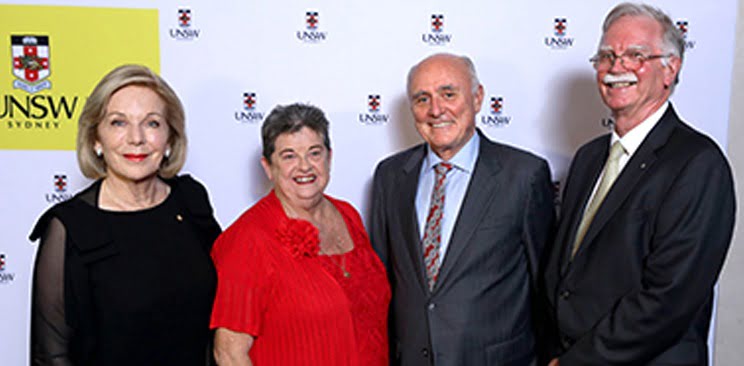Dual winners of the 2017 Australian Mental Health Prize were announced at UNSW Sydney this week in recognition of the major contributions from both professionals and community members in mental healthcare and advocacy.
The awards, presented by federal Health Minister Greg Hunt, went to Janet Meagher, described as a tireless advocate for the rights of people with mental health issues, and Professor Allan Fels, Chair of the National Mental Health Commission.
Ms Meagher, who has been living with schizophrenia for almost 50 years, is said to have dedicated her life to helping ensure a care and support system that is humane, responsive and respectful. She has advocated for those in need for more than 37 years, serving on numerous committees and government agencies, offering advice, support and insight into mental health issues.
She was formerly a commissioner with the National Mental Health Commission and secretary of the World Federation for Mental Health and has held appointments on the National People with Disabilities and Carers Advisory Council, and the Australian Suicide Prevention Advisory Council.
“I think of the many thousands of Australians who struggle for the hope and resilience to live their lives while living with mental-health issues,” Ms Meagher said. “My award is dedicated to them.”
Professor Fels has also had close experience of mental-health issues. His daughter had a difficult childhood and, at the age of 25, psychosis set in. She was later diagnosed with schizophrenia.
Understanding the needs of people with persistent and serious mental-health issues, he helped to establish The Haven Foundation and its specialist accommodation at South Yarra in Melbourne, which helps provide long-term affordable accommodation, support and care for people living with severe and persistent mental illness. This is where his daughter currently resides.
In 2011, Professor Fels became the inaugural Chair of the National Mental Health Commission, an independent government body that reports on the state of mental health and aims to hold governments accountable for their performance in this field.
In this role, which he will hold until January 2018, he has been associated with many significant reforms, including creating a more person-centred approach to mental healthcare, focusing awareness and investment on prevention and early intervention.
“This is a great honour, although there are countless thousands of heroes working in this field and I don’t feel I’ve made a greater contribution than any of them,” he said of his Mental Health Prize win. “Looking ahead, I see two giant challenges: the first is making mental illness a higher priority for the community and the second is greatly improving the way the present system operates.”








